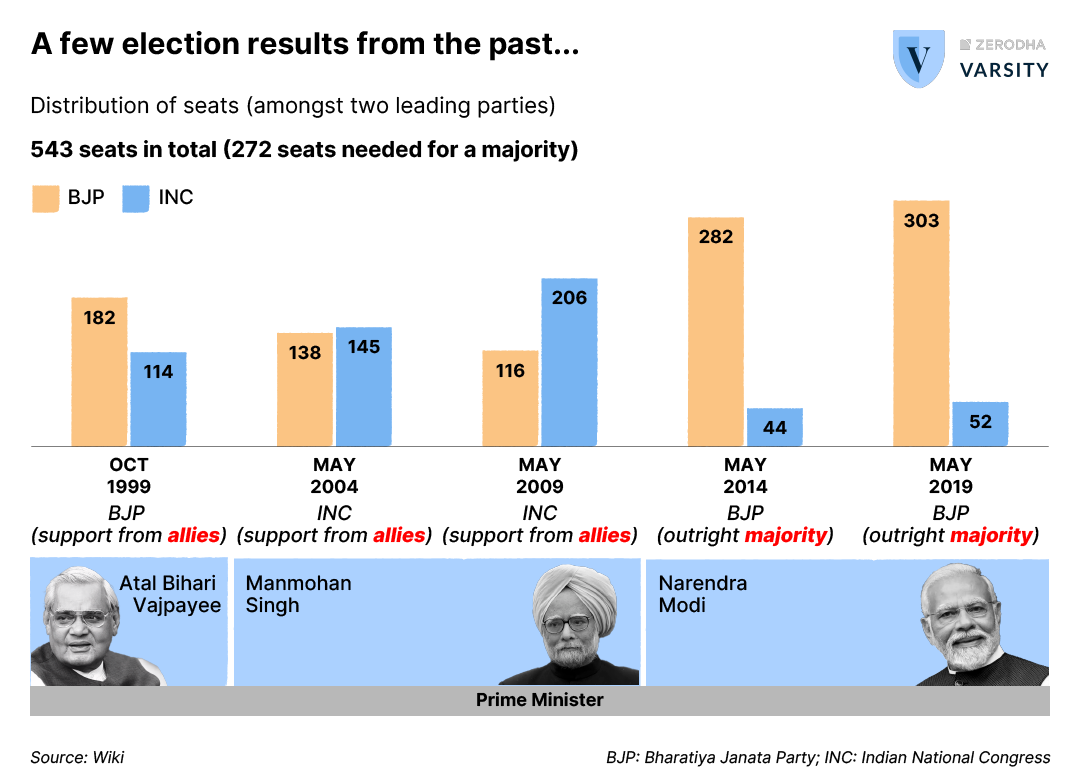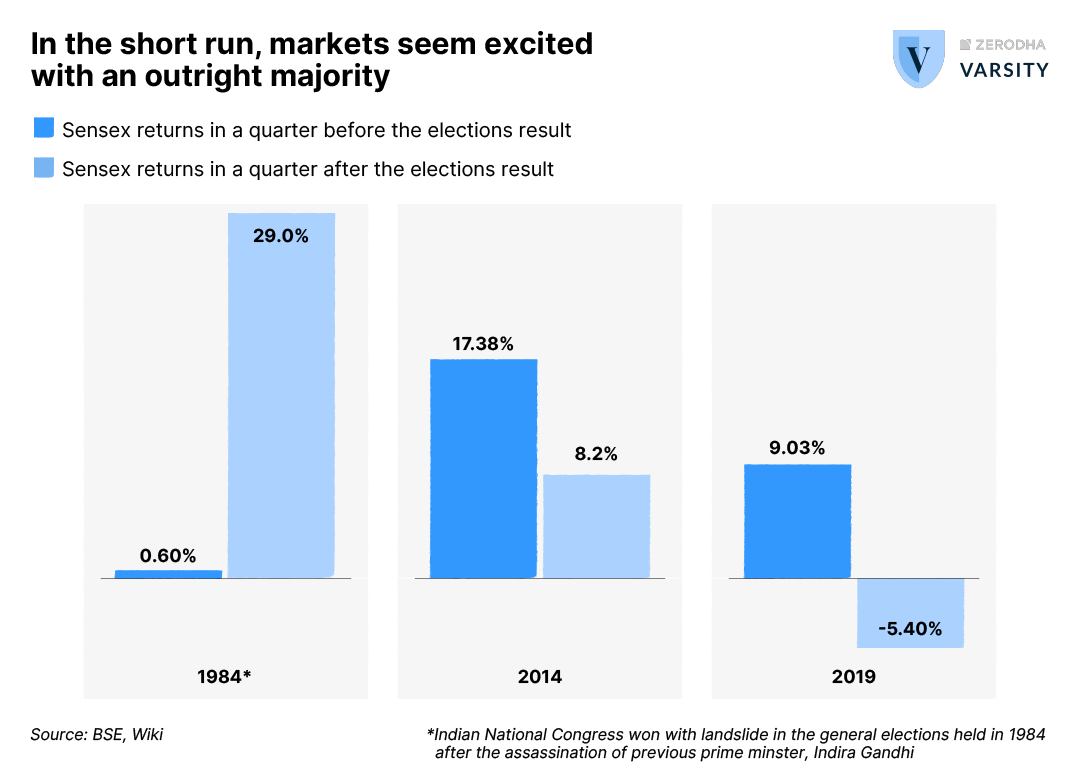
Do elections impact the stock market? Here are our five observations
One of the initial lessons we learn about stock markets is their inherent uncertainty.
When higher uncertainty creeps into the underlying companies or the broader economy, you see higher volatility in the stock market.
Elections in a country are highly unpredictable and ambiguous. Investors usually get jittery about the stability of existing policies and what the new policies might mean for businesses and the market as a whole.
We looked at the data for the past five elections — starting from 1999 to 2019 — to see how long the impact of elections continues to affect stock market prices.
Here are our five observations.
Quick recap
Here is a quick recap of the results of the past five elections
In 1999, 2004 & 2009 – Coalition governments were formed by the leading party either with support or in alliance with other political parties. In 2014 & 2019 – the leading party witnessed an outright majority.

Finding 1
Almost always, the volatility tends to spike pre-election and cools off post-results. We used Nifty ViX data to show the volatility.

Finding 2
The market was volatile yet closed with muted performance on the days of results. The exception in 2009 was also partly because of the stock market crash in 2008.

Finding 3
When there is a majority, the markets seem excited during the quarter leading to the elections or after the results.

Finding 4
The unstable political scene between 16 May 1996 and 19 March 1998, with three prime ministers at the helm, can be considered one of the factors that caused the poor sentiment in the market.

Finding 5
The stability and continuity of policies implemented by one government matter. However, this is not the only factor that impacts the market movement in the long run. One-year Sensex returns from the results date in the past don’t seem to have a trend.

Conclusion
The analysis of past data suggests that elections typically lead to increased volatility in the period preceding the results. The market sentiment on election outcomes is also reflected in short-term price movements.
This pattern has been observed in most cases but may not represent a definitive trend. This is because markets are influenced by various factors, with elections being just one of many.
Regarding the long-term impact of elections on the stock market, no consistent trend seems apparent.
It’s important to note that the above analysis and results are based solely on a broad market index – Sensex. The potential impact of policy changes by political parties on specific sectors has not been considered.
For investors wary of the political landscape, investing in index funds or ETFs representing broad market indices like the Nifty 50 or Sensex could be considered. Over the past 25 years, from 1999 to 2000, the Sensex has delivered an impressive compounded annual growth rate (CAGR) of about 14%. While individual stocks may come and go from the index, and the performance of various sectors may vary over time, the index has consistently generated wealth over the long term.
